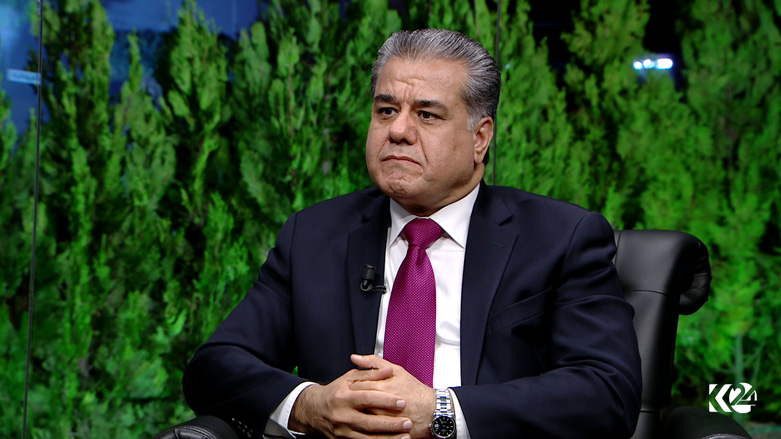Baghdad wants Kurdistan to be Iraq, but refuses to treat them as ‘Iraqis’

ERBIL, Kurdistan Region (Kurdistan 24) – The Federal Government of Iraq is taking advantage of the current crisis to isolate the Kurdistan Region internationally and prevent it from developing ties with the world, a Kurdish official said on Sunday.
In an interview with Kurdistan 24, the head of the Kurdistan Region’s Department of Foreign Relations (DFR), Falah Mustafa, stated that the KRG’s foreign relations with countries remain strong despite the current blockade and sanctions imposed by Baghdad on the Region.
There are 38 foreign representative consulates and offices in the semi-autonomous Kurdistan Region, including the five permanent members of the UN Security Council.
“There are countries in the world that might have the same number of foreign embassies in their land,” Mustafa said, adding the KRG has been successful in improving its foreign policies over the past decade.
He mentioned that there are no federal regions in the world that have developed its foreign relations as much as the Kurdistan Region has, especially in such a short period.
Mustafa rejected rumors that foreign countries’ relations with the KRG had weakened in the past months following the Sep. 25 referendum, noting it was temporary due to Iraqi sanctions and foreign officials prevented from visiting Erbil.
“They’re not happy to see us developing our relations with countries around the world, so they use the opportunity and sanctions to isolate us internationally,” the Kurdish official explained.
Mustafa added that the KRG’s relations with the US remain strong, citing his recent meetings with officials in Washington DC and US envoys in Iraq and the Kurdistan Region.
He stated that the KRG’s foreign relations are based on long-term and strategic interests and would not be affected by recent sanctions imposed by Baghdad.
The Kurdish official explained that Kurdistan’s experiences in the past decade had demonstrated a positive image of the region to the world.
He pointed to the way Kurdistan has developed relations with countries, supported peace and stability, became a role model of social harmony and coexistence in the region, played a substantial role in the fight against the Islamic State (IS), and welcomed over 1.5 million refugees and displaced persons.
Mustafa said the prominence of the Kurdistan Region could not be diminished in days, reminding that Peshmerga and the people of Kurdistan were the first to stop IS’ advance in northern Iraq in 2014 while the extremist group was expanding in other places.
“Many countries around the world support Kurdistan’s statehood, but none will announce this publicly before we declare independence,” he continued. “We haven’t declared independence yet. The referendum was a basic right that the people of the Kurdistan Region practiced peacefully and democratically.”
“It was through the referendum that the voice of the people in the Kurdistan Region reached the international community. It is a step forward,” Mustafa said.
All foreign representatives present in the Kurdistan Region and Iraq know that Baghdad’s sanctions are political rather than carrying any legal basis. They reacted and had pressured Baghdad, but to a certain extent, according to Mustafa.
“Baghdad wants [Kurds in the Kurdistan Region] to be Iraqi but is not ready to treat them as Iraqi citizens,” he emphasized—a concern that many senior Kurdish officials have previously highlighted, accusing Baghdad of treating the people of the Region as second-class citizens.
The head of the DFR noted that KRG Prime Minister Nechirvan Barzani had discussed the Kurdistan Region’s concerns with European officials in his recent visits to France, Germany, and the Vatican, adding Barzani will also visit Italy and the United Kingdom in the coming months.
The KRG currently has official representatives in Australia, Austria, the EU, France, Germany, Italy, Poland, Spain, Sweden, Iran, Russia, Switzerland, the UK, and the US.
Editing by Karzan Sulaivany
(Yadgar Fayeq conducted the interview in Erbil)
